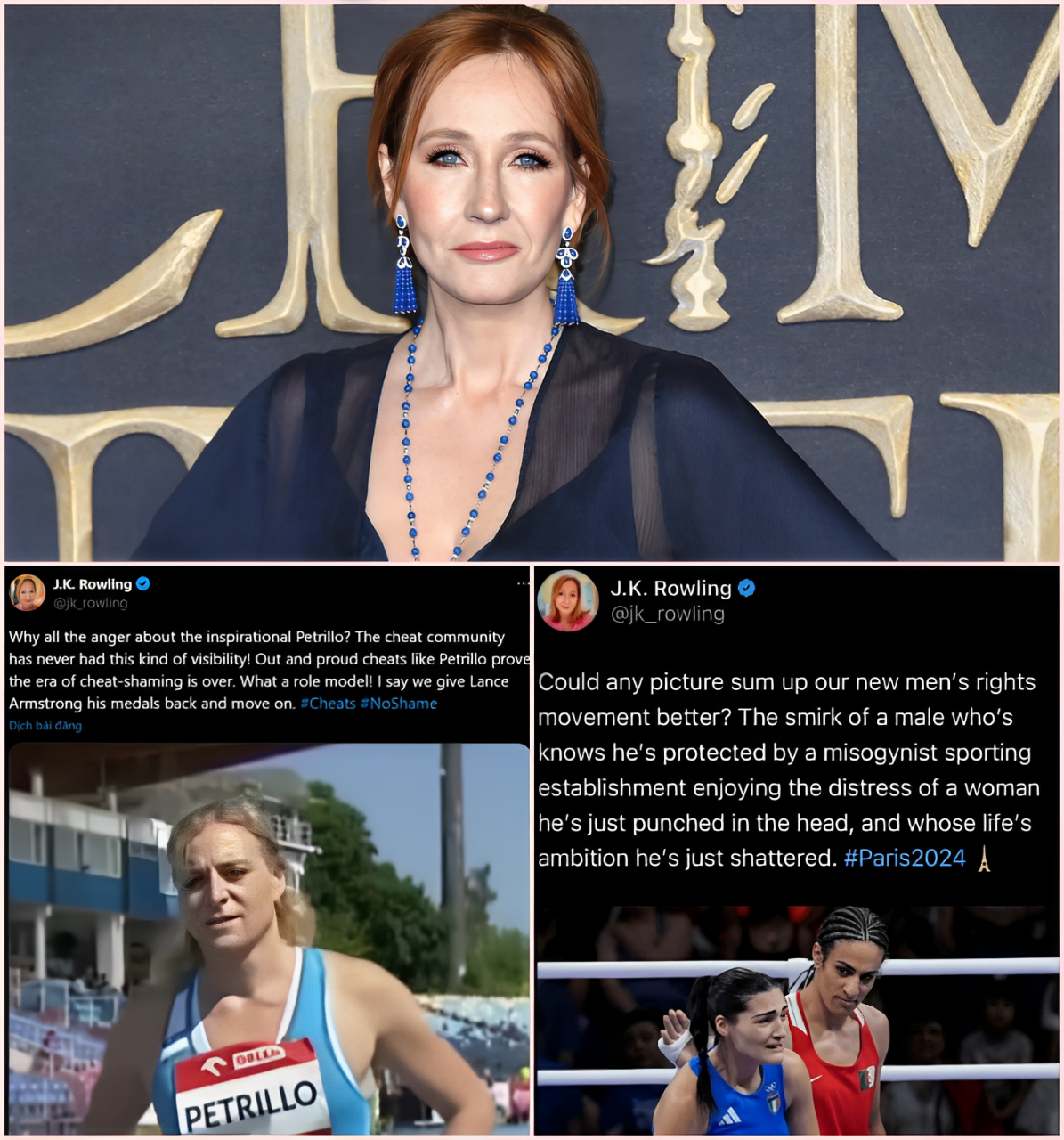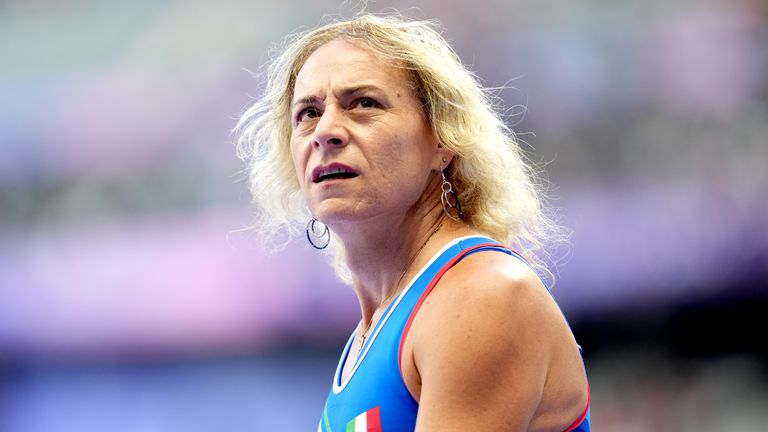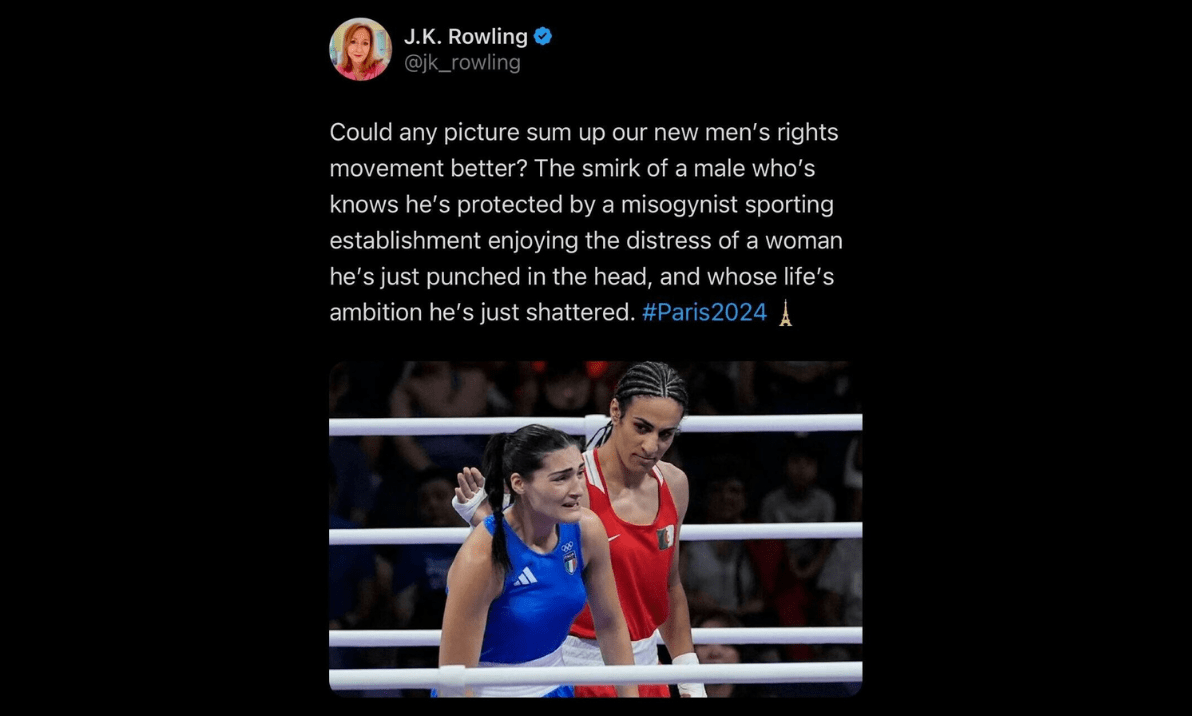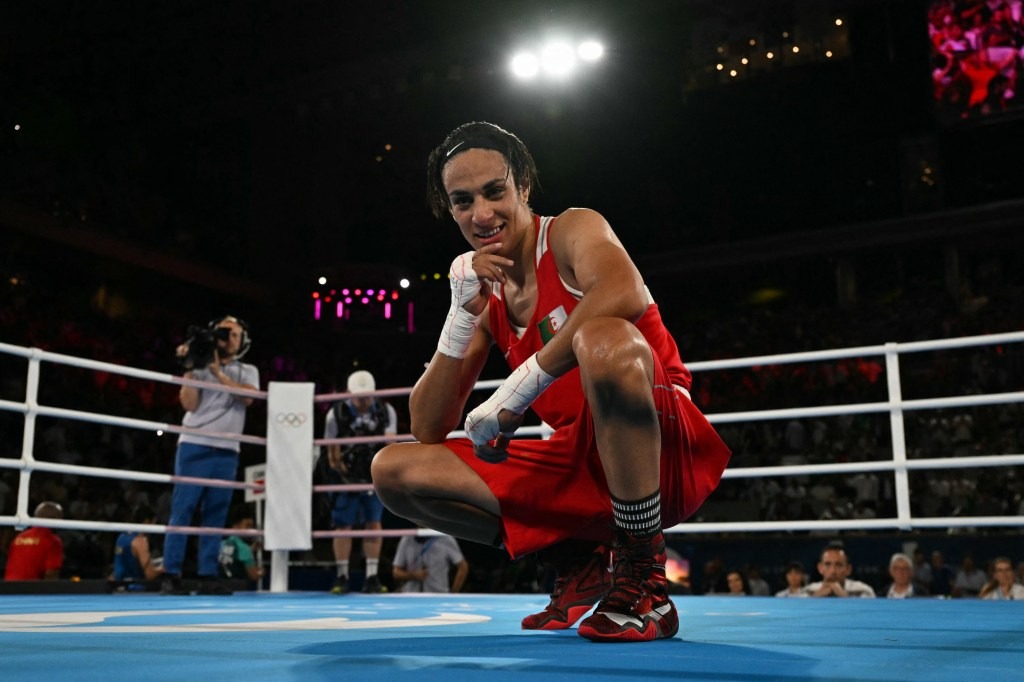J.K. Rowling, the famous author of Harry Potter, has once again sparked controversy, this time with her baseless claim about Algerian boxer Imane Khelif. Her statement on X (formerly Twitter) wrongly accused Khelif of being a transgender woman, leading to a wave of backlash from both the boxing community and fans. This incident, combined with her previous remarks about transgender athletes, has raised concerns about her ongoing comments and the impact they have on public discourse.

The controversy began at the 2024 Paris Olympics during a women’s boxing match between Italy’s Angela Carini and Algeria’s Imane Khelif. Carini withdrew from the match after just 46 seconds, following a powerful punch from Khelif. In response, Rowling shared a photo from the bout and declared that Khelif was a transgender woman, writing, “Can any photo summarize the new men’s rights movement better than this? The smirk of a man, knowing he’s protected by a misogynistic sports organization, delighting in the pain of a woman whose dreams he just shattered with a punch to the head.”

This post quickly went viral, but Rowling’s accusation was false. According to multiple sources, including the Associated Press, Khelif is a biological woman, and her passport reflects that. Carini herself defended Khelif, telling The New York Times, “All this controversy deeply saddens me, and I feel sorry for my opponent. She has nothing to do with this and, like me, is here simply to fight.” Despite these clarifications, Rowling doubled down on her claims, further fanning the flames of the controversy.

The severity of Rowling’s accusations highlights a larger problem: her increasing fixation on transgender athletes. This was not the first time Rowling had made disparaging remarks about the transgender community. She had previously targeted Valentina Petrillo, a blind transgender sprinter competing in the Paralympics. Petrillo, who became the first transgender woman to compete in a Paralympic athletics event, was subjected to Rowling’s online attacks, where the author called her a “cheat.”

Rowling’s harsh words about Petrillo were not just factually incorrect but also insensitive. Petrillo, who didn’t even make it to the finals, was accused of cheating despite adhering to all the Paralympic rules and regulations. While people may debate the fairness of transgender athletes in certain sports, calling someone a “cheat” implies dishonesty or breaking the rules, which was not the case with Petrillo. Rowling’s comparison to Lance Armstrong, who was caught in a doping scandal, only deepened the misunderstanding and harm caused by her remarks.

Unsurprisingly, the reaction from the public was swift and fierce. Fans and commentators were quick to criticize Rowling for spreading misinformation and for her continued attacks on transgender athletes. One fan on social media posted, “For someone who built a legacy on promoting acceptance, her words are now filled with division and cruelty.” Others pointed out that Rowling’s comments detract from the real issue of ensuring fairness in sports, focusing instead on personal attacks that seem to target individuals rather than addressing systemic issues.
As a result of these remarks, Khelif has reportedly filed a lawsuit against Rowling and X’s owner, Elon Musk, for cyberbullying and defamation. This legal action underscores the seriousness of the situation, as the baseless claims have resulted in real harm to Khelif’s reputation and mental health.
Rowling’s actions not only fuel a toxic online atmosphere but also highlight the power that celebrities wield in shaping public opinion. Her words, despite being inaccurate, have emboldened those who share her views, further polarizing an already sensitive debate about the inclusion of transgender athletes in competitive sports.
In conclusion, J.K. Rowling’s recent comments have crossed a line, from expressing opinions to making harmful, unfounded accusations. Whether driven by her personal beliefs or a desire to provoke, the consequences of her words are severe. As public figures, especially those with as much influence as Rowling, their responsibility lies not just in voicing opinions, but in ensuring that their words do not cause unnecessary harm.
